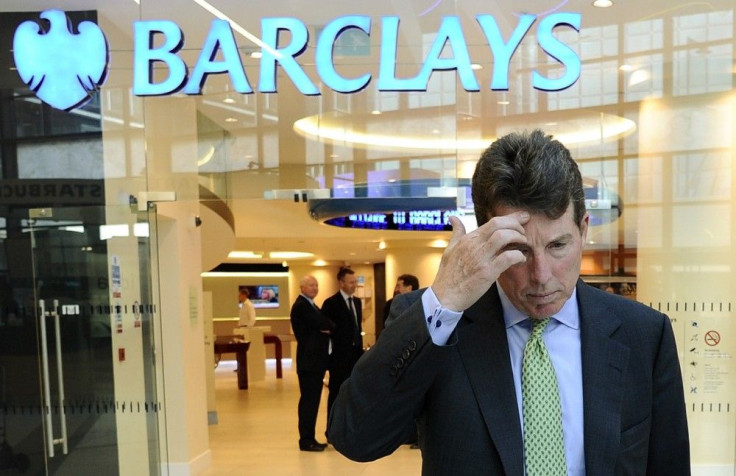Ex- Barclays CEO Blames Bank of England for Libor Debacle
The Central Bankers Made Us Do It

The British Parliament might not be the place one would expect to see fireworks on July 4.
But that's exactly what's could happen Wednesday, when Bob Diamond, former chief executive at U.K. banking giant Barclays plc (NYSE:BCS) is expected to tell the House of Commons the fraud the bank was perpetuating was at least partly done at the bidding of the Bank of England.
Last week, Barclays was ordered by the U.S. Commodities and Futures Trading Commission, the U.S.Justice Department, and the U.K. Financial Services Authority to pay fines amounting to $450 million for manipulating the London Interbank Offered Rate (Libor), a benchmark interest rate figure used to settle hundreds of trillions of credit products worldwide.
According to prepared statements, Diamond, who resigned Tuesday, will argue that people in the company believed an instruction had been passed down from the Bank of England not to keep LIBORs so high in 2008. In other words: the central bankers made us do it.
Diamond's resignation was preceded Monday by that of Barclays Chairman Marcus Agius. The bank's chief operating officer, Jerry del Missier, also quit Tuesday. The bank's American Depositary Receipts fell 19 cents to $10.58, or about 2 percent, in Tuesday trading, or nearly 38 percent below their 52-week high.
In his statement, Diamond, 60, an American who'd been at Barclays 16 years, is expected to paint Barclays as a good guy, even recounting an October 2008 conversation with Paul Tucker, deputy governor of the Bank of England, in which they discussed why Barclays' LIBOR submissions were consistently high.
Diamond told Tucker it was likely because the other banks were submitting fraudulent numbers, the document explains. When he suggested the Bank of England should disclose the fraud at the other financial institutions, rather than call up Barclays, Tucker reportedly replied that that would be worse policy direction.
During 2007 and 2008, Barclays believed that other banks were making LIBOR submissions that were too low and did not reflect market conditions, Diamond's testimony reads.
The claim the bank was acting on behalf of the central bank is somewhat difficult to square with other claims that once the bank began manipulating rates there was no knowledge by anyone in the bank above desk supervisor level of this conduct at the time, the prepared statement released Tuesday said.
Wednesday's appearance in Parliament is expected to be a moment of humility for Barclays executives, and Diamond in particular, who earlier this year complained it wasn't fair to keep pillorying bankers for the financial crisis and that while there was a period of remorse and apology for banks, that period needs to be over.
On Wednesday, Diamond is expected to at least partly go back on that stance, noting we have a great deal to do to win back public trust - as a bank; and as an industry.
© Copyright IBTimes 2024. All rights reserved.











